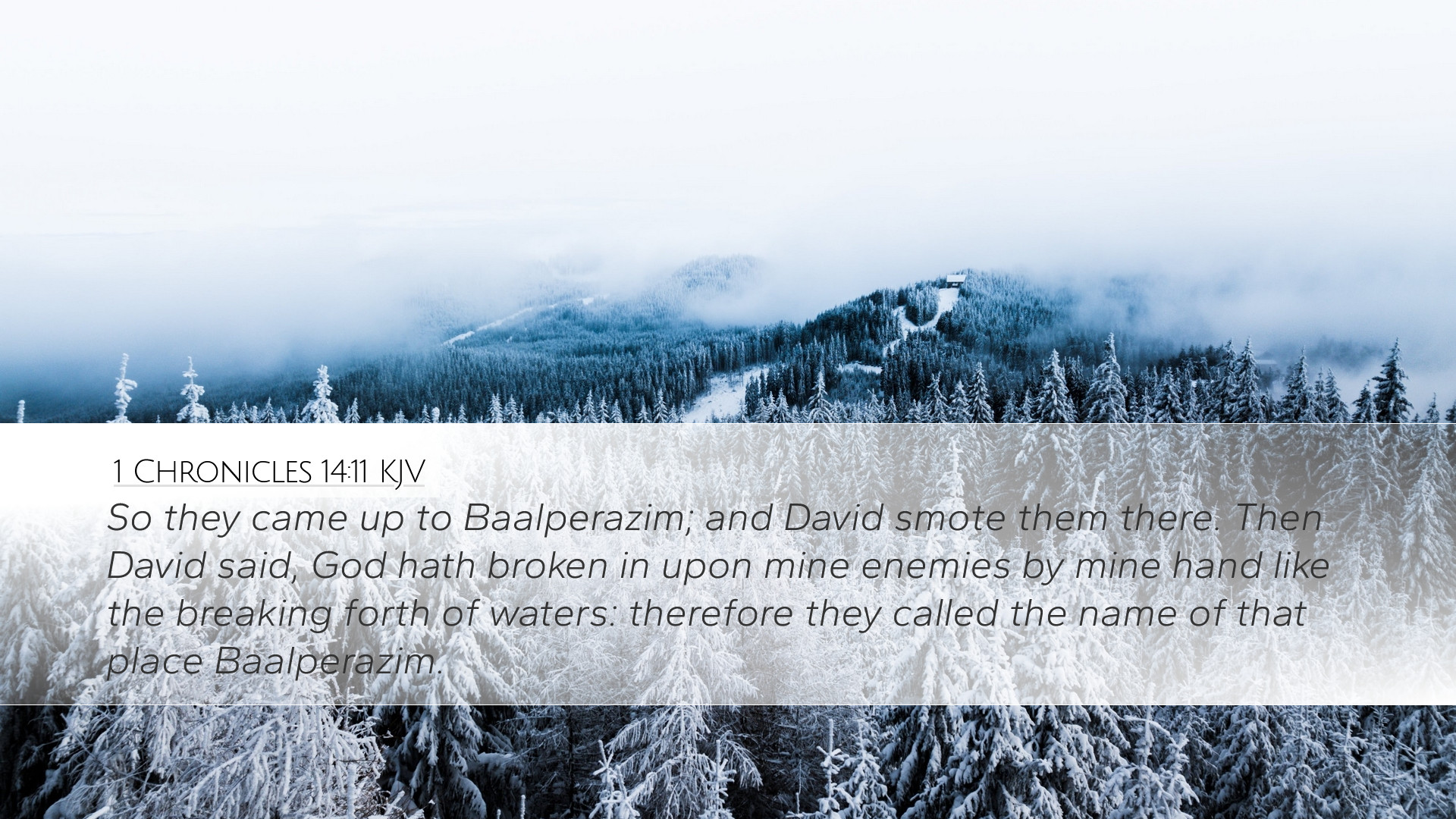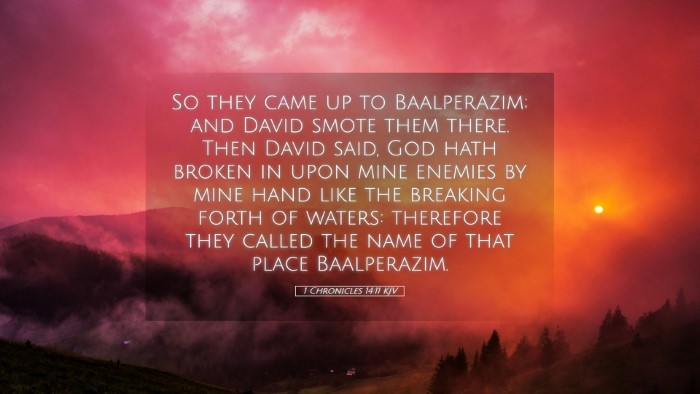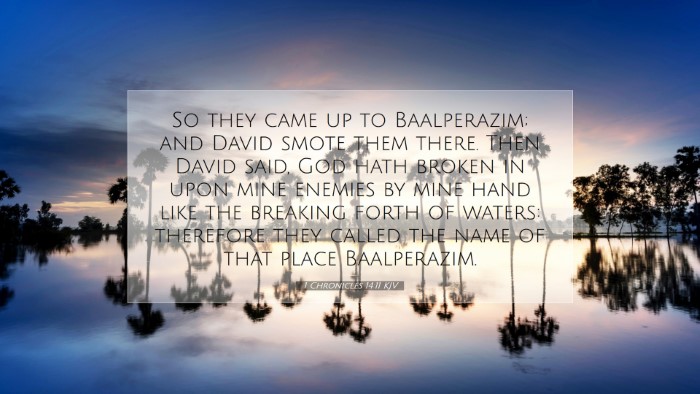Commentary on 1 Chronicles 14:11
Verse Reference: 1 Chronicles 14:11 - "So they came up to Baal-perazim; and David smote them there. Then David said, God hath broken in upon mine enemies by my hand like the breaking forth of waters: therefore they called the name of that place Baal-perazim."
Introduction
This verse captures a pivotal moment in King David's military successes and his understanding of divine aid in warfare. It reflects the interplay between human action and divine providence—a theme prevalent throughout Scripture. The narrative shows David's reliance on God and crediting Him for the victories achieved against the Philistines.
Historical Context
The Philistines were perennial adversaries of Israel, and their encounters with David marked significant military engagements. This specific battle at Baal-perazim demonstrates the strategic significance of David’s leadership at this time—he united the tribes of Israel and faced external threats with faith-based reliance on God.
Commentary Insights
The insights derived from notable public domain commentaries shed light on various aspects of this verse:
1. Matthew Henry's Perspective
Matthew Henry elaborates on the significance of God’s intervention in battles. He interprets David’s victory as a clear example of how God aids His people in times of strife. David’s declaration, “God hath broken in upon mine enemies,” illustrates the understanding that true victory is only achieved through divine assistance. Henry emphasizes the importance of acknowledging God's agency in our endeavors, stating that victories, like the breaking forth of waters, are often sudden and overwhelming, reminiscent of how the grace of God operates in the life of a believer.
2. Albert Barnes' Commentary
Albert Barnes further expounds on the meanings embedded in the name “Baal-perazim,” translating it as “the Lord of Breakthroughs.” He notes that David’s encounter is not merely a military triumph but symbolizes the breaking of barriers or obstacles through faith. Barnes encourages readers to view the events in the light of how God operates in seemingly impossible situations. This commentary suggests that spiritual breakthroughs often follow fervent prayer and reliance on God's will, aligning with David’s approach to seeking divine guidance before engaging with the enemy.
3. Adam Clarke's Interpretation
Adam Clarke provides a detailed examination of the phrase “like the breaking forth of waters.” He discusses the imagery associated with such a metaphor, suggesting it conveys suddenness and power. In Clarke's interpretation, he cites historical battles and natural occurrences to illustrate how God’s power overwhelms the opposition. His commentary encourages Christians to expect divine intervention in their struggles, paralleling David’s experience with contemporary spiritual warfare.
Theological Themes
This verse embodies several key theological themes:
- The Sovereignty of God: The acknowledgment of God’s role in providing victory showcases His omnipotence and sovereignty over human affairs.
- The Nature of Victory: The verse illustrates that true success comes not from military might but through the providence of God, serving as a reminder to believers to depend on divine support.
- Faith in Action: David exemplifies how faith must coincide with action; he engages the enemy but recognizes God’s pivotal role in the outcome.
- Worship and Recognition: The place name, Baal-perazim, serves as a memorial to God’s intervention, emphasizing the importance of remembering and honoring God for His works.
Practical Applications
For pastors, students, theologians, and scholars, this verse encourages several practical applications:
- Prayerful Preparation: Before engaging in any challenges, one should seek God's guidance through prayer, emulating David’s initial approach to battle.
- Recognizing God’s Hand: Acknowledge and celebrate personal and communal victories as acts of divine intervention, reinforcing faith within the community.
- Understanding Spiritual Warfare: Recognize the ongoing battles in the spiritual realm, equipping oneself with the knowledge that God is an ever-present help in times of need.
- Reflective Remembrance: Create space for memorials in personal and community life that honor instances of God’s faithfulness and intervention, fostering a culture of gratefulness and trust in divine providence.
Conclusion
1 Chronicles 14:11 serves as a powerful reminder of God’s involvement in the lives of His people. The interplay of faith and action is essential for believers to understand; victories are rooted in divine sovereignty. As scholars and practitioners reflect on this verse, may it encourage a deeper reliance on God, enhanced understanding of His mighty acts, and a commitment to honoring His name in all circumstances.


